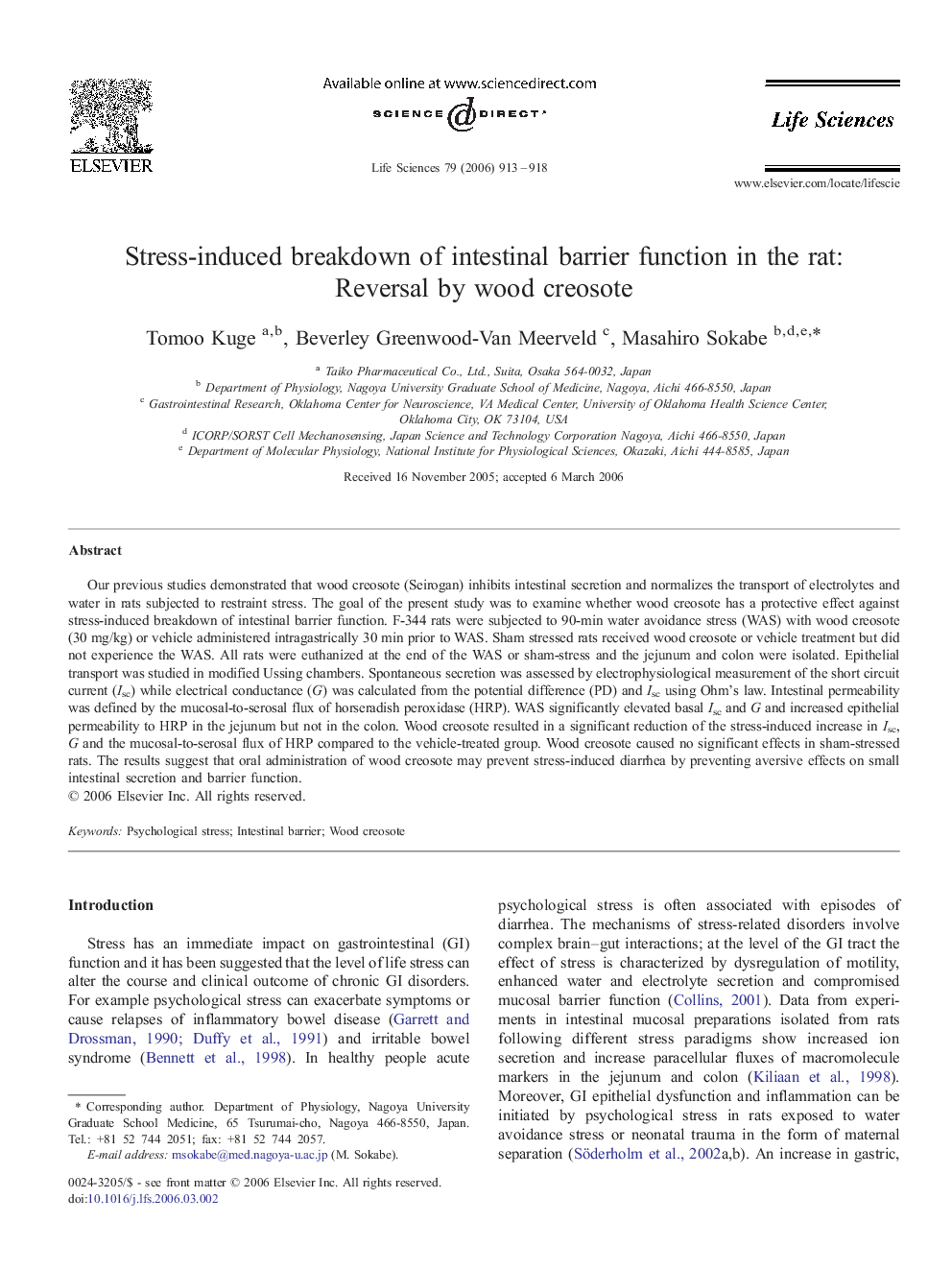| Article ID | Journal | Published Year | Pages | File Type |
|---|---|---|---|---|
| 2554892 | Life Sciences | 2006 | 6 Pages |
Abstract
Our previous studies demonstrated that wood creosote (Seirogan) inhibits intestinal secretion and normalizes the transport of electrolytes and water in rats subjected to restraint stress. The goal of the present study was to examine whether wood creosote has a protective effect against stress-induced breakdown of intestinal barrier function. F-344 rats were subjected to 90-min water avoidance stress (WAS) with wood creosote (30Â mg/kg) or vehicle administered intragastrically 30Â min prior to WAS. Sham stressed rats received wood creosote or vehicle treatment but did not experience the WAS. All rats were euthanized at the end of the WAS or sham-stress and the jejunum and colon were isolated. Epithelial transport was studied in modified Ussing chambers. Spontaneous secretion was assessed by electrophysiological measurement of the short circuit current (Isc) while electrical conductance (G) was calculated from the potential difference (PD) and Isc using Ohm's law. Intestinal permeability was defined by the mucosal-to-serosal flux of horseradish peroxidase (HRP). WAS significantly elevated basal Isc and G and increased epithelial permeability to HRP in the jejunum but not in the colon. Wood creosote resulted in a significant reduction of the stress-induced increase in Isc, G and the mucosal-to-serosal flux of HRP compared to the vehicle-treated group. Wood creosote caused no significant effects in sham-stressed rats. The results suggest that oral administration of wood creosote may prevent stress-induced diarrhea by preventing aversive effects on small intestinal secretion and barrier function.
Related Topics
Health Sciences
Medicine and Dentistry
Cardiology and Cardiovascular Medicine
Authors
Tomoo Kuge, Beverley Greenwood-Van Meerveld, Masahiro Sokabe,
